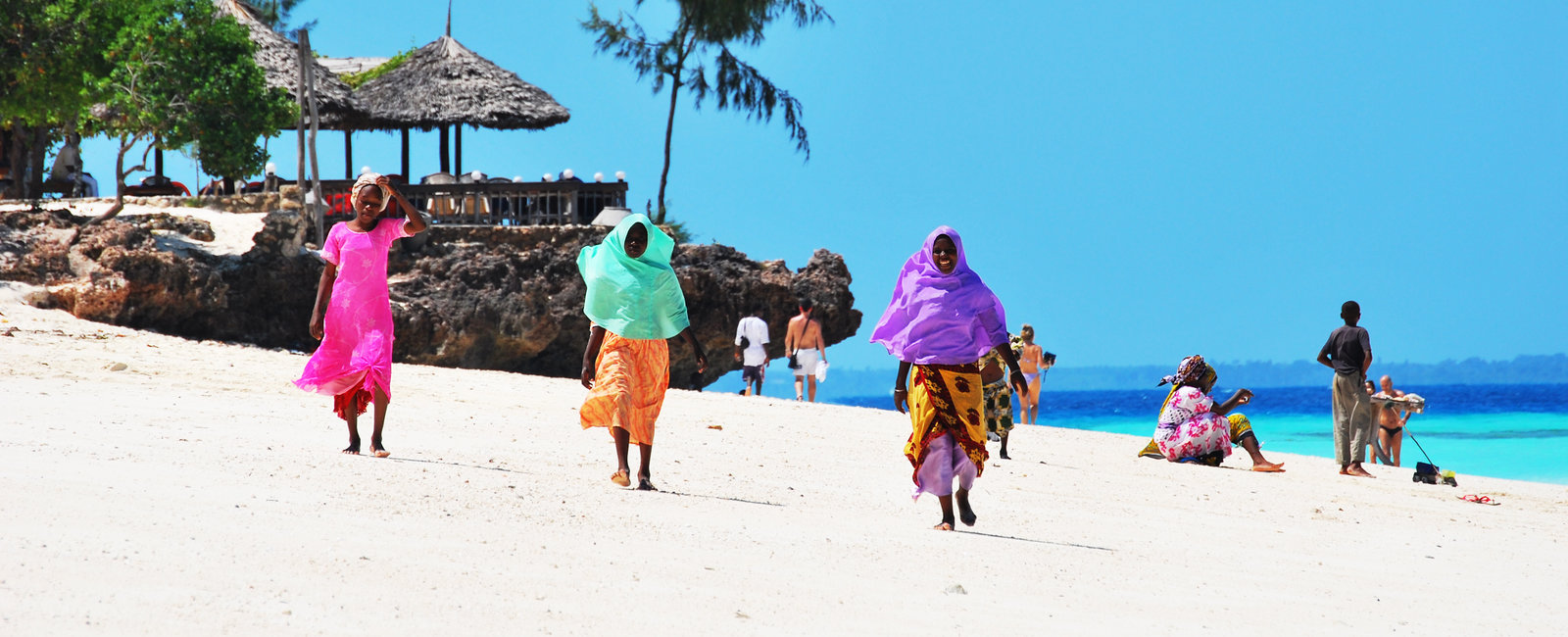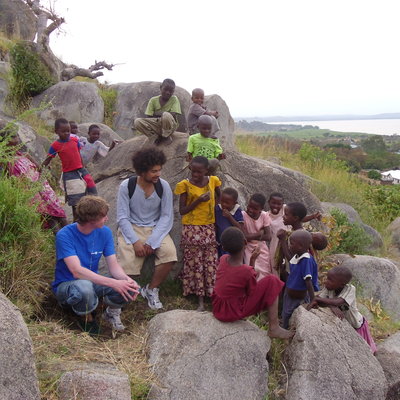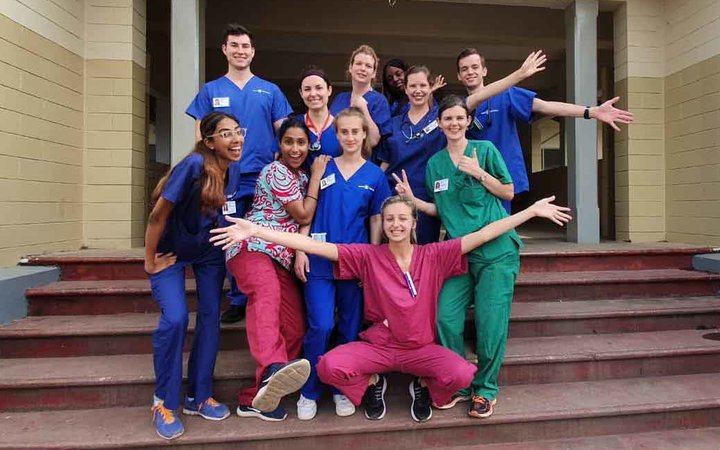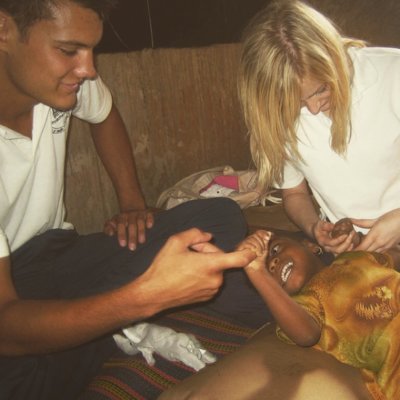 In 2008, Jonathan Clark travelled to Tanzania in Africa on a physiotherapy elective placement. He writes about his experience below.
In 2008, Jonathan Clark travelled to Tanzania in Africa on a physiotherapy elective placement. He writes about his experience below.
While I was at university, I had the chance to undertake an overseas physiotherapy placement with an organisation called Work the World.
You’re thrown straight in at the deep end when you enter the working world. Getting extra practice with this overseas placement was important to help me prepare myself.
I did my placement in my second summer at university. I had a lot of time off in the summer, so I wanted to make it productive and use it well. I wanted to do something that would give me a better chance of securing a junior post after I qualified.
I love travelling and experiencing different cultures, religions, and societies, so I chose to travel to Tanzania. This experience allowed me to not only improve my physiotherapy skills but also experience life in a different country.
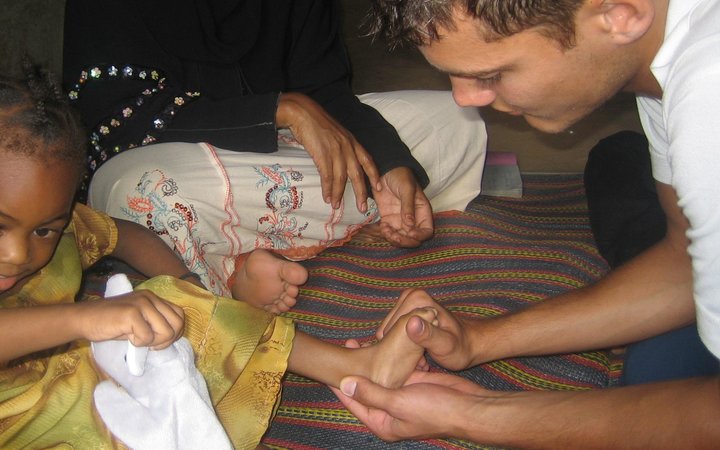 We had some fantastic travel experiences while we were out there, too. We got our PADI licenses, swam with dolphins, and saw giant tortoises... As much as we were there to learn from the clinical placement, we did a bit of growing up, too.
We had some fantastic travel experiences while we were out there, too. We got our PADI licenses, swam with dolphins, and saw giant tortoises... As much as we were there to learn from the clinical placement, we did a bit of growing up, too.
The country was beautiful but economically disadvantaged. There was also a real sense of community there, which was incredible.
It was a real eye-opener, and the whole experience gave me a new perspective. I used to be quite materialistic, but when I returned home from my trip, I was ready to change my view of life.
I carry that feeling with me even now. It helped me to develop as a person and strengthened my morals, ethics and beliefs. It made me more appreciative of life.
My clinical experience
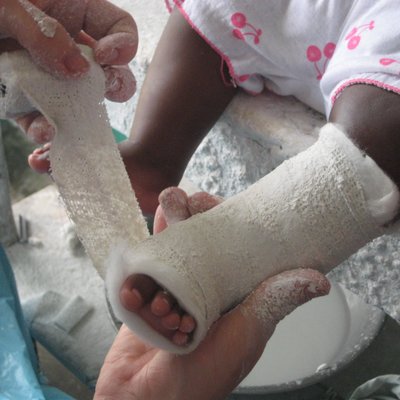 For the placement itself, I chose to be based in adult and paediatric outpatients.
For the placement itself, I chose to be based in adult and paediatric outpatients.
At that point, we got to pick and choose what we did and where we wanted to get experience. I think having that flexibility made the trip that much better.
Something I remember particularly well was a game that kids used to play in the school playground. The boys climbed palm trees to bring down a coconut to show off to the girls. I think of it as the Tanzanian equivalent of kiss chase.
But, of course, falling out of trees is a bit of a hazard. Loads of boys would come into the hospital with fractured wrists where they’d fallen from height. We did a lot of physiotherapy with them to rehabilitate their wrists.
We spent time on the burns and orthopaedic wards, too. We even got to observe a couple of surgeries.
We even did a two-day community outreach trip. We went into people’s homes to treat patients with cerebral palsy.
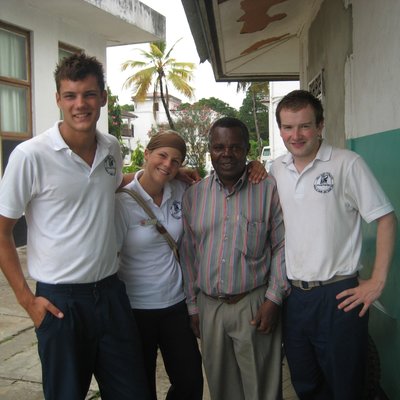 The provision of physiotherapy there was a lot different to what we’d learned in the UK. They used very different approaches and methods but delivered the same kind of service.
The provision of physiotherapy there was a lot different to what we’d learned in the UK. They used very different approaches and methods but delivered the same kind of service.
But as I say, it was a different setting. But I felt we could apply the approaches we’d learned in the UK.
They favoured electrotherapy over there. I remember the head physio managed to get a £2000 grant from the local government to develop the hospital’s physiotherapy services and spent the money on TENS machines.
But, regarding the assessment and diagnosis of conditions, things were comparable to those in the UK.
Life after university
So, when I returned from my elective, I had one year left at university. I then worked for the NHS for four years — 18 months as a junior physio and two and a half as a senior physio.
I then did some private work at a football club and gradually increased my private work alongside my NHS work. It got to a point where I’d built up enough private work to leap.
I then worked privately for a couple of years for different companies. However, I didn’t agree with many of their treatment approaches. They were almost completely financially driven, with a ‘conveyor belt’ mentality — patients in, patients out.
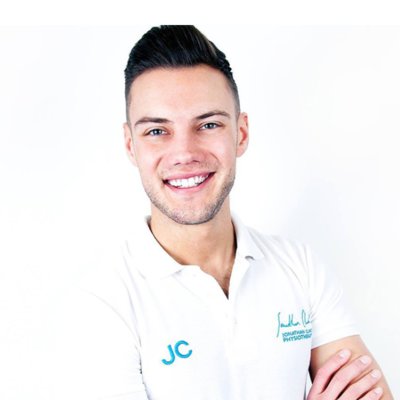 I wanted to start a physio business based on my beliefs and values about how physiotherapy should be delivered.
I wanted to start a physio business based on my beliefs and values about how physiotherapy should be delivered.
So, I set up my first clinic at the University of Southampton. I rented a room and built up my client base from their gym. I got recognised by AXA, Bupa and Nuffield Health and started getting many contracts.
I was doing well, so I opened another clinic a year later. The following year, I opened another one. And I opened another one the year after that. I’ve now got four clinics and our team is 21 strong.
We deliver a premium service for all our clients based on my values of quality, empowerment and integrity. With that in mind, we will become Hampshire's biggest and best provider.
My final thoughts
After my placement with Work the World, I increased my self-belief and returned to my studies.
I better understood what it might be like to be a physiotherapist in the working world.
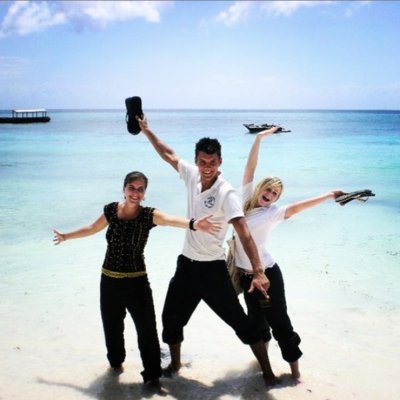 This helped drive my passion and motivation to become a physiotherapist. After that placement, I was in the zone during my third year — I put my whole heart into it.
This helped drive my passion and motivation to become a physiotherapist. After that placement, I was in the zone during my third year — I put my whole heart into it.
Something else I came away with was increased confidence in my clinical practice.
And another was learning how to approach treatment for people from cultural backgrounds different from my own.
Even in the UK, cultural and religious factors can influence the kind of care healthcare practitioners can deliver. My overseas experience taught me how to manage those situations better — I’ve been able to apply this to my practice back in the UK.
If you’re considering undertaking a placement with Work the World, just do it. Just do it.
Discover more about our Electives in Africa. You'll find various unique destinations offering eye-opening clinical experiences and adventures.
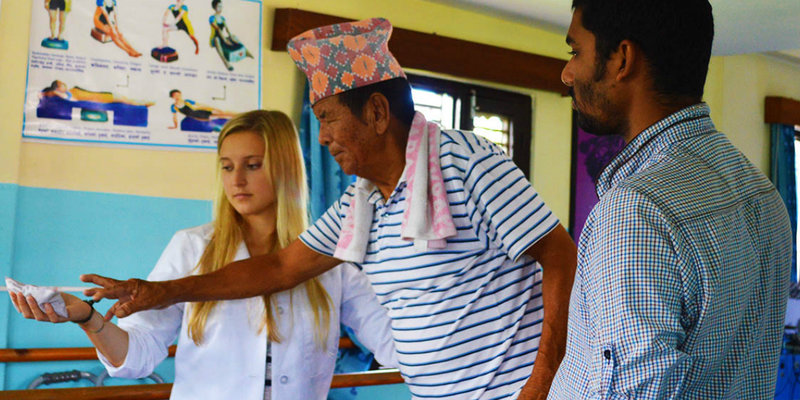
PHYSIOTHERAPY
ELECTIVES
Improve your career prospects by getting sought-after experience on an overseas physiotherapy elective.
Improve your career prospects by getting sought-after experience on an overseas physiotherapy elective.
